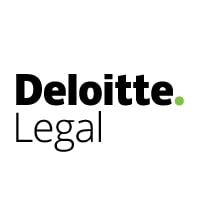

Head of Legal & Compliance Italy & Greece | Danone



Giovanna Rosato
Head of Legal & Compliance Italy & Greece | Danone
How do you approach managing legal aspects during periods of instability or crises, and how does your legal strategy align with the broader business strategy to ensure the organisation’s resilience?
Dealing with periods of instability and crisis is certainly more complex and challenging but it allows teams to test their strength and resilience. The approach that I generally apply even in non-crisis periods is a very realistic and concrete, based on transparency and integrity.
Transparency first in the relationship with my team to make it aware of critical topics and business plans and motivate it to give maximum support even in chaotic situations when top line functions are particularly under pressure. Working alongside colleagues in synergy is the objective that I ask my team to achieve and that make it feeling part of designing one safe business strategy.
Transparency also in relations with company functions to define a winning strategy, both day by day and in the long term. The essential approach must be that of osmosis and interaction between teams for full transparency of perspectives. The following are crucial: (i) know the final destination, by participating in strategic local and group meetings and committees to have a 360° view of all activities; (ii) have a clear map to reach the destination, be aware of the risks of business strategies, know legal, regulatory and compliance limits and trends of courts and authorities through constant updating; this is essential to identify and suggest the solutions to adopt, but also any viable alternative to guide changes without compromising the company plans; (iii) strengthen synergy with other functions to ensure timely intervention.
I have found in many situations that the strategy of transparency and interaction guarantees the resilience of the organisation especially if strengthened through clear and persuasive communication to defuse conflicts among the teams and build solid interpersonal relationships, necessary to overcome disagreements determined by the needs to apply legal/regulatory/compliance requirements.
What are the main cases or transactions that you have been involved in recently?
The main challenges in which I have been involved concern the implementation of the sustainable governance and the integration between the already existing compliance requirements, processes and controls with those relating to sustainability in line with the CSRD, CSDDD and Italian and European rules and standards. Other challenges include the contribution of designing governance and procedures for obtaining gender equality certification under UNI PDR 125:2022.
How have you integrated technology into your legal processes, and what impact has this had on efficiency and compliance?
Legal and compliance processes are supported by several tools for managing approval flows, reports and documents repository. With the aim of creating a well-integrated compliance system the challenge for the future is using/tailorising such tools to combine needs of legal and compliance controls and approvals with those requested by the top line functions for their business management and to understand how AI can support such processes.
What role does the legal department play in promoting and ensuring corporate social responsibility in your organisation?
The legal department plays a key role in promoting sustainability culture, explaining standards applicable to industries and the risks of a failure/incorrect implementation of sustainability requirements. This department acts as driver to design the most appropriate corporate governance and the necessary procedures to reach an integrated system between the classic areas of compliance, relating to integrity, antitrust and privacy and those that must be implemented to guarantee a successful sustainability strategy in synergy with corporate functions, stakeholders and supply chain.